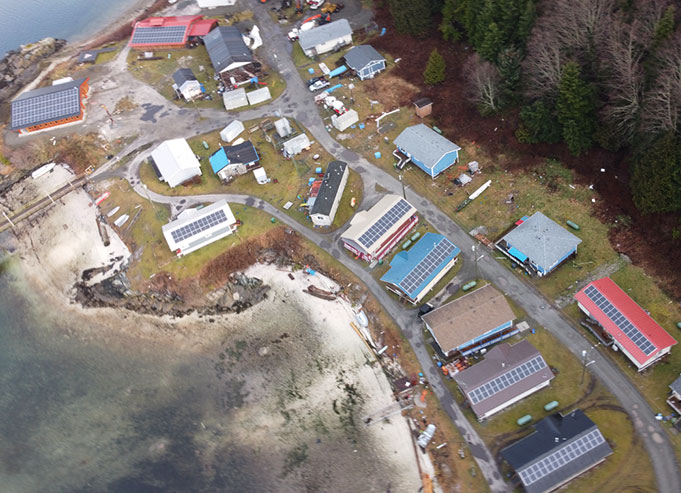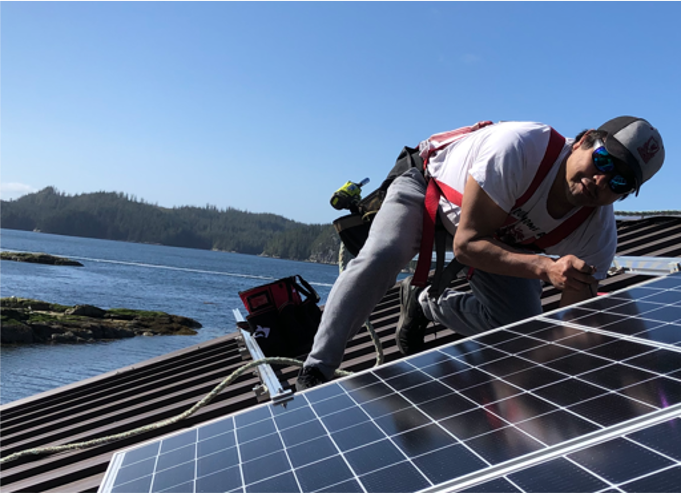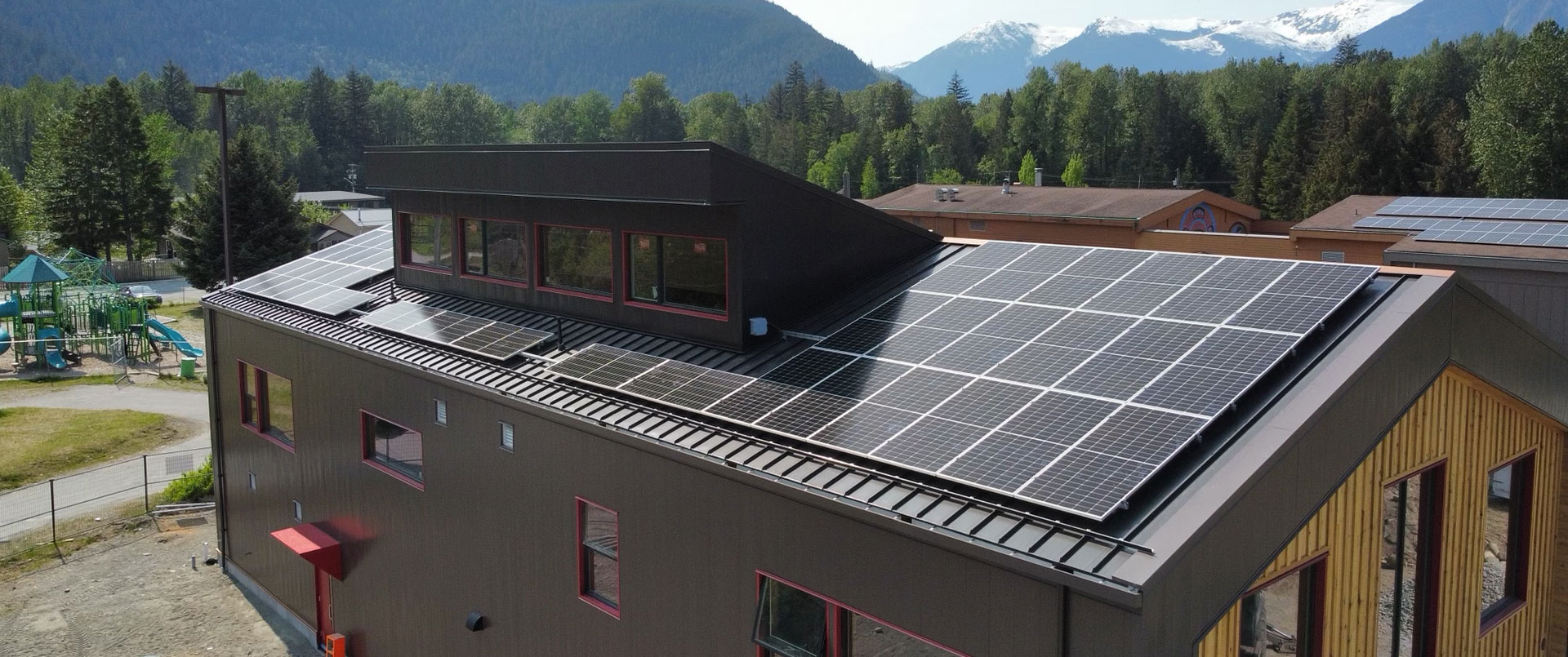Remote Indigenous communities throughout the province are moving forward with clean energy projects to offset diesel power and build self-sufficiency. Below we have highlighted a few exciting community projects.
Community-Wide Heat Pumps
CFN member First Nations and other remote Indigenous communities are embracing heat pumps as a reliable, cost-effective, and sustainable solution for indoor heating and cooling. Community-wide heat pumps have already been installed by Skidegate, Old Massett, Heiltsuk, and Gitga’at, and installations are ongoing in Kitasoo Xai’Xais, Nuxalk, Uchucklesaht, and more.
In contrast to electric baseboard heaters, heat pumps are three times more energy efficient and can be powered by renewable energy sources, reducing both operating costs and greenhouse gas emissions. To extend the success achieved by CFN member communities in implementing community-wide heat pumps, the Indigenous Climate Action Network has collaborated with partners and communities to develop a comprehensive resource: the Toolkit for Installing Heat Pumps in Remote Indigenous Communities.
This toolkit, which highlights knowledge sharing and the power of collaboration, offers step-by-step guidance tailored to the unique needs of each community interested in adopting heat pumps.
Haíɫzaqv Climate Action: Community-Led Energy Plan
In March 2022, the Haíɫzaqv Nation celebrated the completion of the Haíɫzaqv Community Energy Plan, a crucial step towards transitioning away from diesel and protecting their homelands and waterways for future generations.
Led by Climate Action Coordinator Leona Humchitt, this plan outlines clean energy solutions tailored to the Haíɫzaqv people, encompassing healthier homes, affordable energy, enhanced food security, clean jobs, economic opportunities, and a sustainable future. Further, the plan was developed through a comprehensive and inclusive process, involving two years of deep community engagement with over 1,000 participating members.
The Haíɫzaqv Climate Action Team is now collaborating with the community and other stakeholders to work on the Healthy Heiltsuk Homes initiative to increase the efficiency, comfor tand affordability of all Heiltsuk homes. The Climate Action Team is also undertaking a study to use renewable diesel in their fishing vessels.
Visit heiltsukclimateaction.ca for more information.
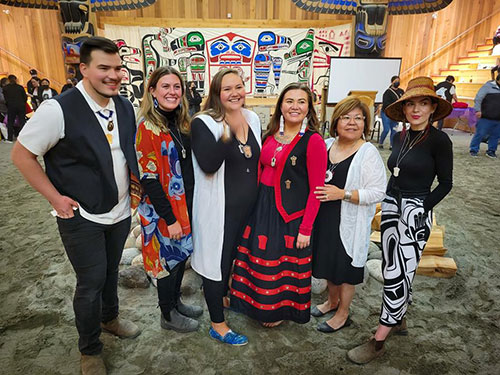
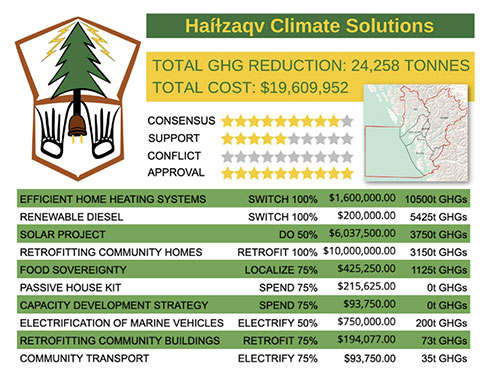
Nuxalk Nation’s Solar Installation Project Paves the Way for Sustainable Energy
The Nuxalk Nation is leading the charge toward a sustainable future with a 122.58 kWp solar project. The project began with installations at the Acwsalcta School Gymnasium and Acwsalcta Grounds Daycare/Longhouse, with plans for further expansion, including the Nuxalk Administration Building. This initiative, which aims to bring solar power to key community buildings, was made possible through funding from New Relationship Trust and Indigenous Clean Energy – Generation Power. The solar project included a zero-cost credited training course provided by Nuxalk College and Nicola Valley Institute of Technology thatistraining eight solar installers to support future work, including three youth.
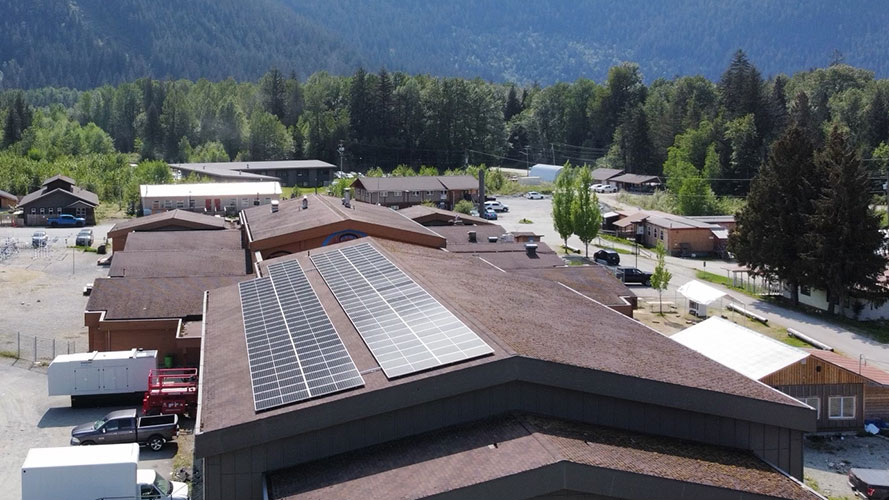
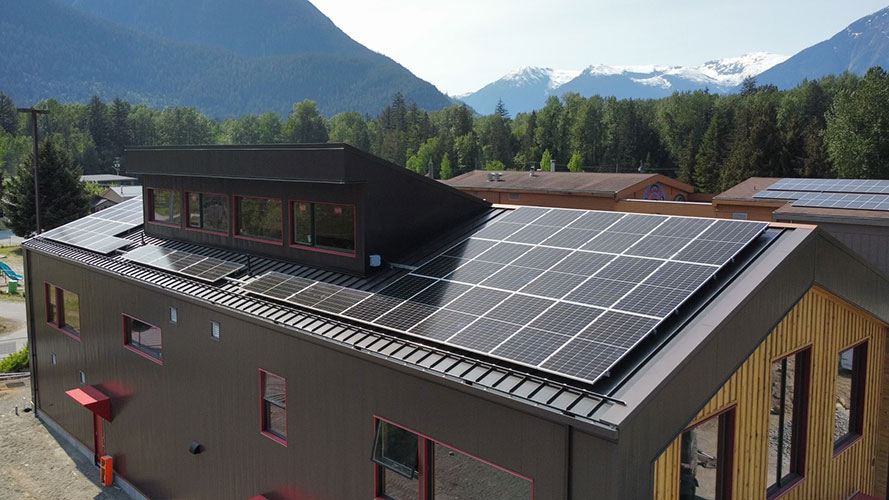
KHFN Solar Project
The Kwikwasut’inuxw Haxwa’mis First Nation (KHFN) is leading a transformative initiative in their community through the installation of multiple solar arrays. This project has made significant progress in curbing carbon emissions by reducing annual diesel consumption by 73,000 litres. Through a culture-focused design, they have installed solar panels on community residences, the Big House, and public facilities. The KHFN Gwa’yas’dums Village on Gilford Island has constructed 26 new homes since 2005 and equipped most with solar panels and recently converted 12 to heat pumps from electric baseboard heating. KHFN is currently building 6 new homes that will also include solar panels and heat pumps as well as energy efficient appliances, insulation, LED lighting, windows, and doors. These sustainable homes not only contribute to a healthier environment but also play a role in supporting community members to move back home.
